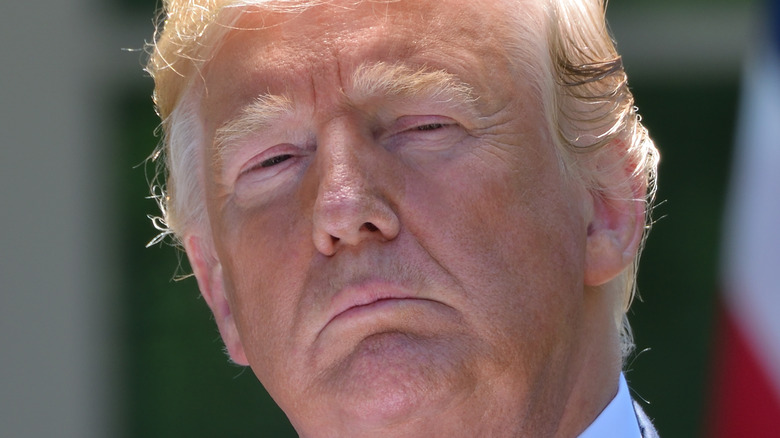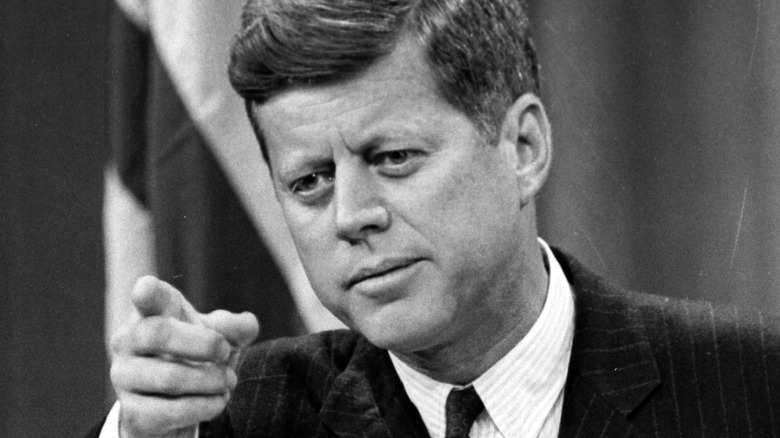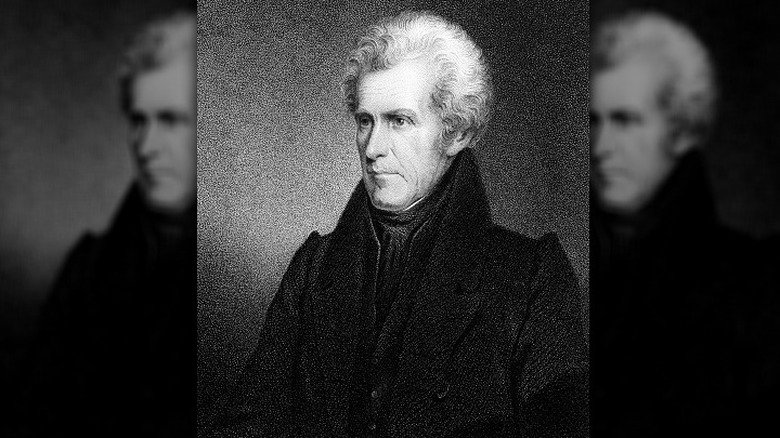The Origin Of The Term Trumpism
In mid-November 2022, former President Donald Trump announced his bid to return to the White House in the 2024 presidential election. Trump's statement was made in front of his Florida Mar-a-Lago residence, according to CNN. From his first run for the presidency in 2016 and throughout his one term in office ending in 2022, Trump has fostered a controversial brand of politics now often called Trumpism (via Cambridge Dictionary).
As The Hill explains, the term Trumpism is more than just lingo for other politicians, political observers, and pundits to describe Trump's worldview. And though now most closely associated with the policies of the 45th U.S. president, threads of what makes Trump's politics Trumpism — redefining what an ideal political candidate should be like, as well as dictating their views on everything from economics to foreign policy, among parts of their platform — have been a part of Washington politics in one form or another for generations, as The Hill goes on to note.
Celebrity is an important part of Trumpism
According to The Hill, celebrity or name and face recognition is a big part of Trumpist politics, and as a former reality star and high-profile real estate developer, Trump fits that mold. The importance of celebrity in politics is nothing new, dating to the rise of television and the first presidential debate between John F. Kennedy and Richard Nixon in 1960, during which Kennedy is said to have outperformed Nixon thanks to the Massachusetts former senator's photogenic good looks and comfortable on-screen appearance (via the John F. Kennedy Library and Museum). Ronald Reagan, who served two terms as president in the 1980s, had been an actor before his career in politics (per The White House).
Another defining aspect of Trumpism is nativism, and though those politics are renewed in Trump's rhetoric, typified by his 2016 campaign slogan "Make America Great Again," or MAGA, there are other periods in U.S. history when nativist leanings were a big part of U.S. politics, perhaps most notably in the platforms of the mid-19th century political party called the "Native American Party," the "Know-Nothings," or simply later the "American Party," according to Britannica. Alarmed over rising levels of immigration at the time, the "Know-Nothings" joined forces with the Republicans In the mid-1850s. President Millard Fillmore ran and lost on the "Know-Nothing" ticket in the 1856 presidential election (via the Library of Congress).
Trumpism also values candidates who are outsiders
With no political experience prior to his 2016 bid for the White House, Trump also fits the third most defining characteristic of Trumpism, according to The Hill. Because of his background in the private sector and in the media, Trump is widely seen as a political outsider. Trump is certainly not the first political candidate or successful politician in history to draw attention to that aspect of their candidacy, beginning with Andrew Jackson (pictured) and including presidents James Garfield, U.S. Grant, and even Lincoln, as WNYC Studios explains.
Finally, among the most defining characteristics of Trumpist politics is populism, defined as an appeal to the average working class over wealthy, privileged elites. In 2016 and 2020 Democratic Presidential candidate Bernie Sanders also held populist appeal (via WNYC Studios). In the 1890s, there was even a short-lived "Populist" political party, sometimes called the "People's Party." Should Trump win a second non-consecutive term in office, he would be only the second U.S. president to do so. Grover Cleveland won the White House for two non-consecutive terms. He was first elected president in 1884, lost in 1888, and won again in 1892, according to CNN.


